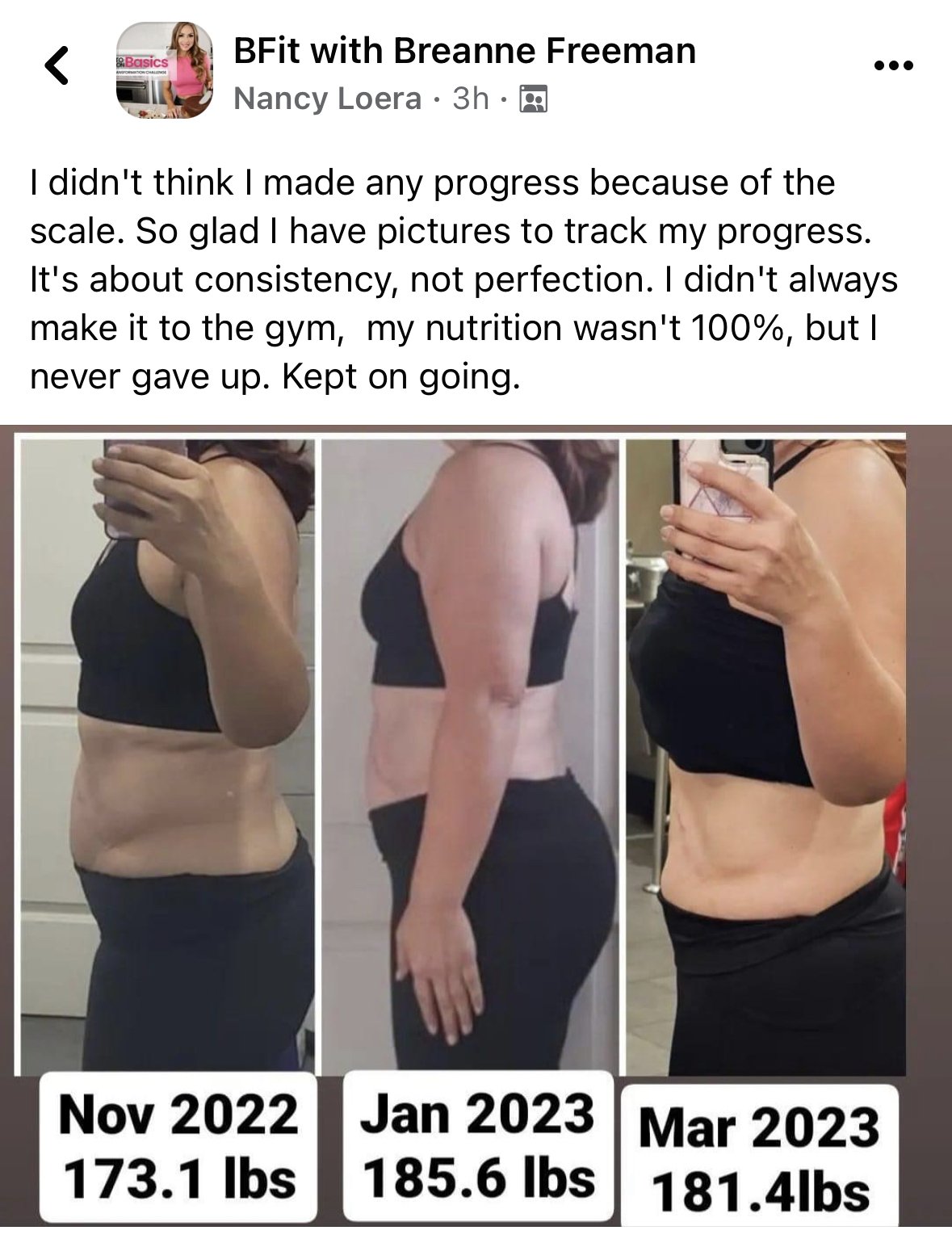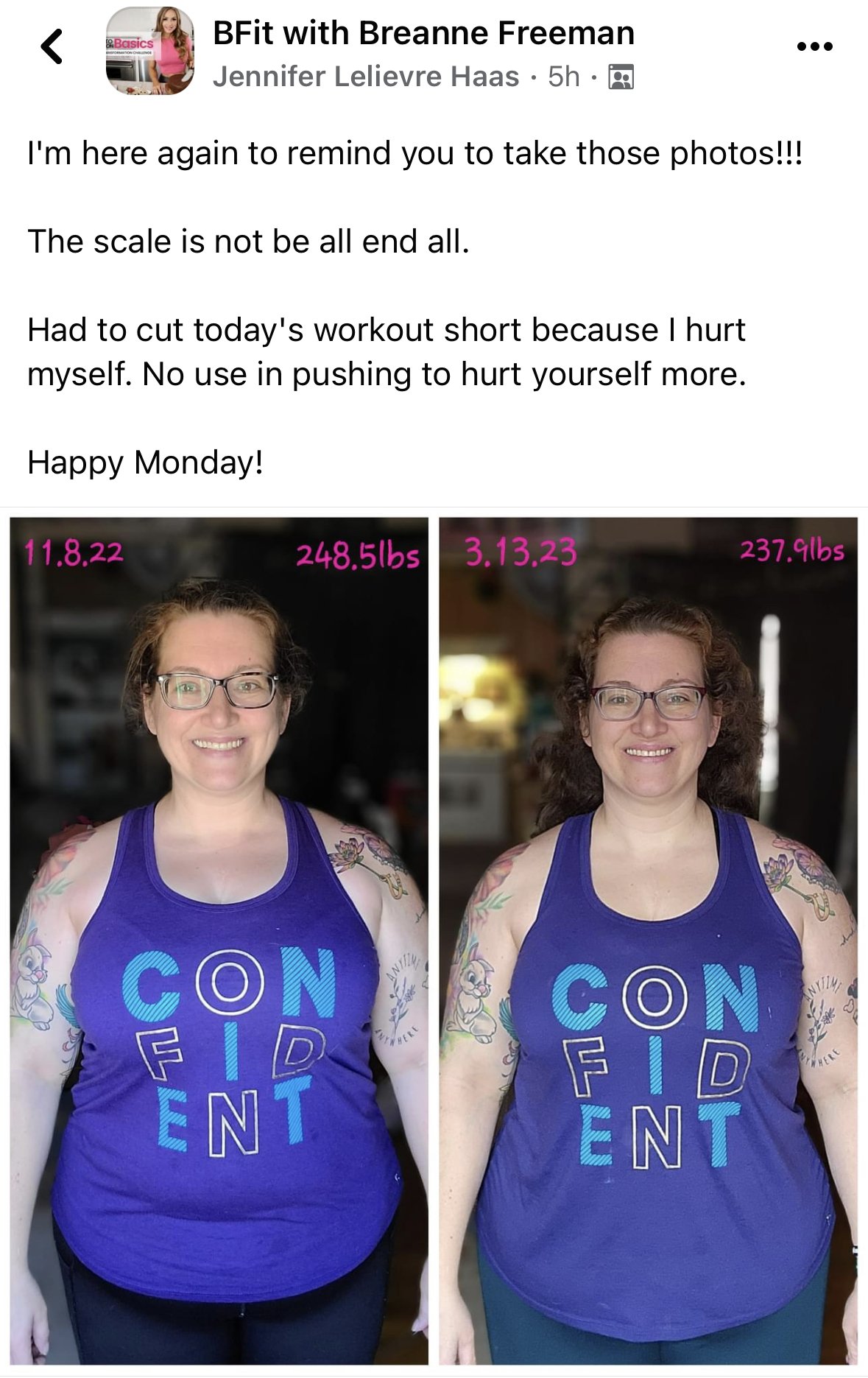Why the scale sucks
Scale weight is often used as a proxy for progress, but it’s important to recognize that scale has its limitations.
Scale weight is often used as a proxy for progress. Studies have shown that people who weigh themselves regularly tend to have better weight loss and weight maintenance outcomes compared to those who do not track their weight
This being said, it’s important to recognize that scale weight has its limitations:
-
If you are following a resistance training program, you may be gaining muscle mass while losing fat mass. Since muscle is denser than fat, it is possible to gain muscle and lose fat, but see little to no change in overall weight.
-
Sodium plays a significant role in regulating the body's fluid balance. When you consume salt, the body responds by retaining more water to maintain a proper balance of fluids in the body. For every gram of salt consumed, the body can retain up to 4 grams of water weight. This is typically temporary and can be easily reversed by reducing salt and increasing water intake.
-
When we consume carbohydrates, our body breaks them down into glucose molecules and stores them in our muscles and liver as glycogen. Glycogen is stored with water, so we also retain some extra water in our body. The more muscle we build, the more glycogen storage capacity your body has! This is a great thing in terms of your metabolic and physical health, and helping our muscles look full. Just note the for every gram of carbohydrate consumed, around 3-4 grams of water are stored along with it.
-
During the menstrual cycle, progesterone levels increase after ovulation and peak during the luteal phase (second half of a woman’s cycle). This increase in progesterone can cause the body to retain more water, which can result in bloating and weight gain. Some women may experience up to several pounds of water weight retention during this time. As uncomfortable as it is, remember this is temporary. Once estrogen levels rise agin, the bloat and water retention will dissipate.
-
The weight of food and waste products in your digestive system can also affect your weight. For example, if you have not had a bowel movement in a while, your weight may be temporarily higher due to the weight of the fecal matter in your colon.
-
Changes in bone density can also affect weight. For example, if you have been diagnosed with osteoporosis and begin a treatment plan that increases bone density, your weight may increase even if your body composition has not changed significantly.
-
Age and gender can also affect body composition, and may result in changes that are not accurately reflected in weight. For example, women tend to have a higher percentage of body fat than men, so changes in body composition may be more noticeable in women even if weight remains the same.
If you needed a little assurance, Nancy and Jennifer have done an amazing job documenting their journey in the BFit Facebook group:
With so many factors influencing scale weight, use this as one tool to measure progess. Pictures, measurements, how your clothes fit, improved strength and endurance, and your overall well-being will tell a much bigger story in the long-term.
How long before you can expect to see meaningful changes?
>> If you're starting BFit from a sedentary lifestyle and begin a new exercise program along with nutrition changes, you’ll likely notice fat loss and muscle gain changes in your body within 4-6 weeks.
>> If you’ve been with BFit for months and/or already exercising for years and have a decent grasp on nutrition, changes will be much more gradual. Depending on your current body composition and what your goals are, noticeable fat loss and muscle gain will take months, possibly years.
Consistency is key, so focus on making sustainable lifestyle changes rather than expecting overnight results. Slow and steady progress is more likely to lead to lasting improvements in your body composition and overall well-being.



